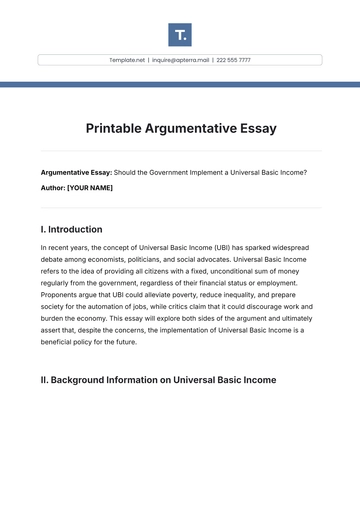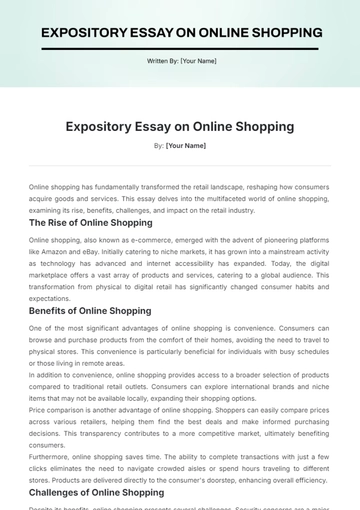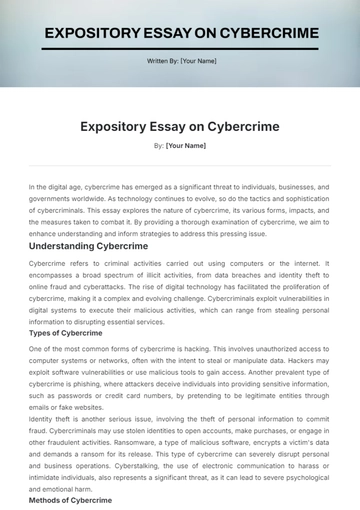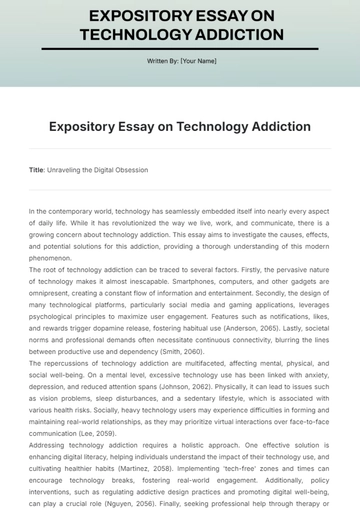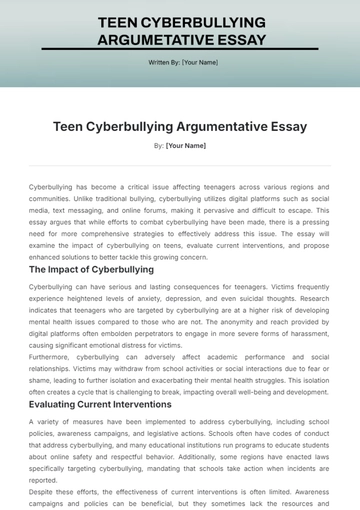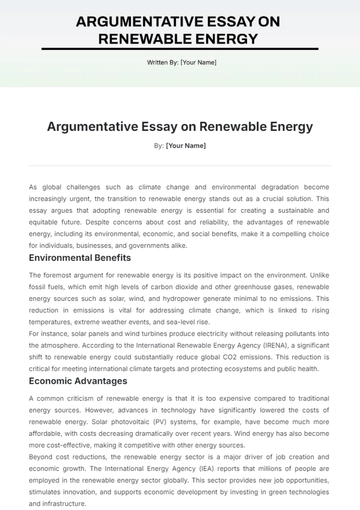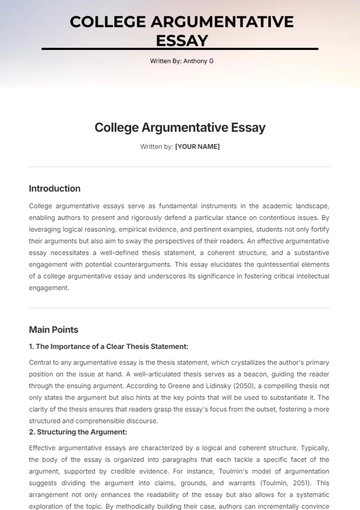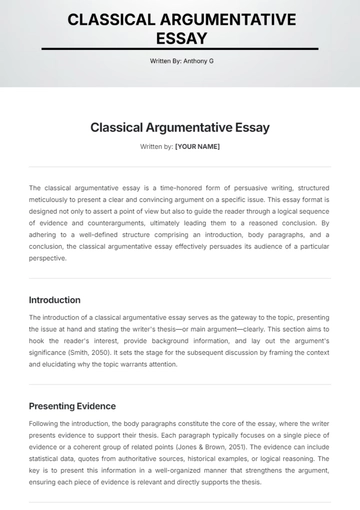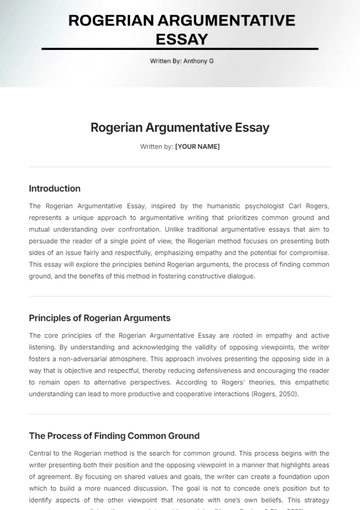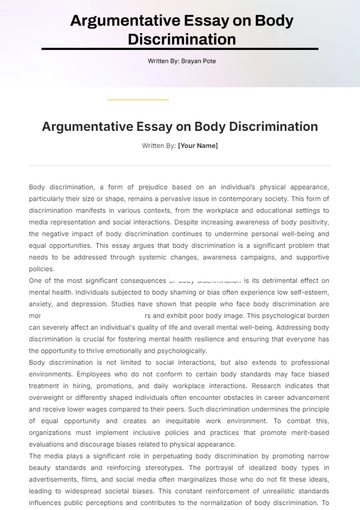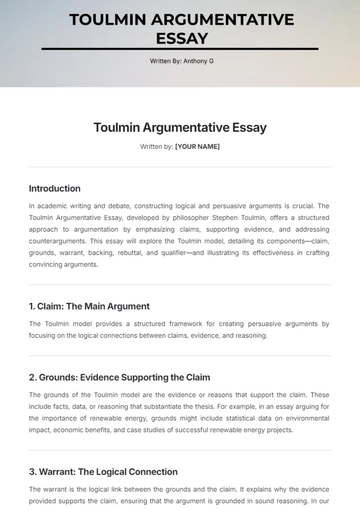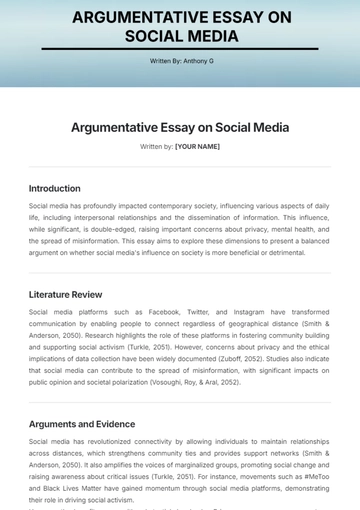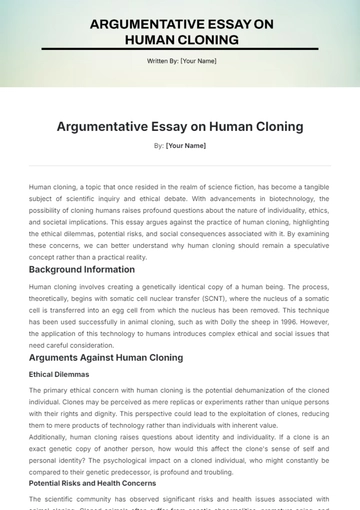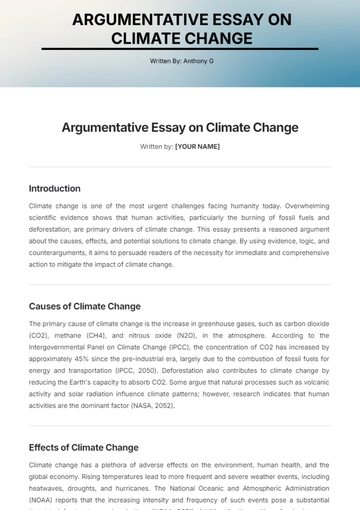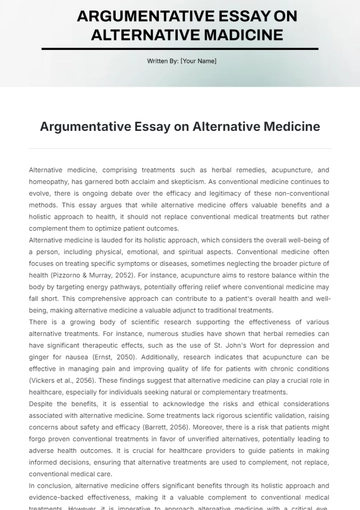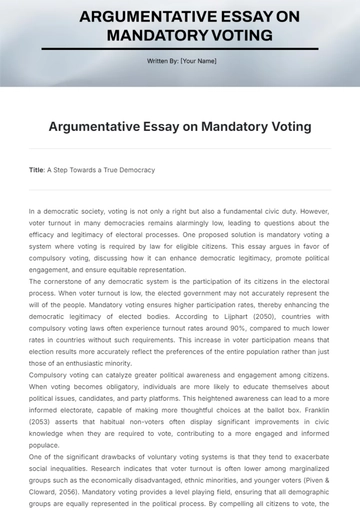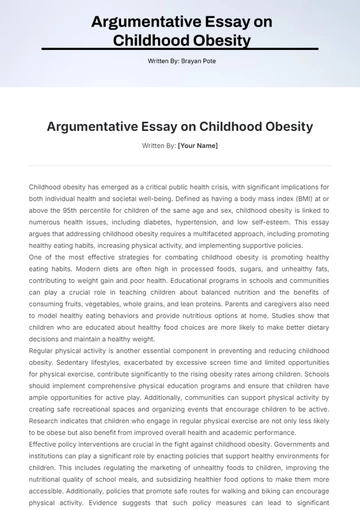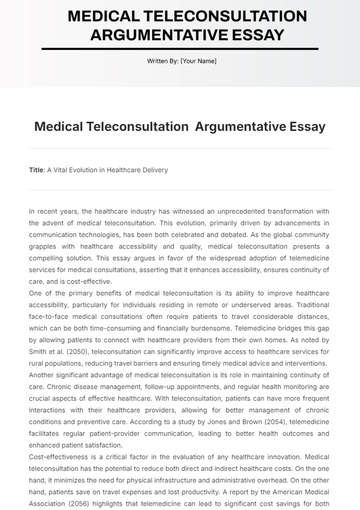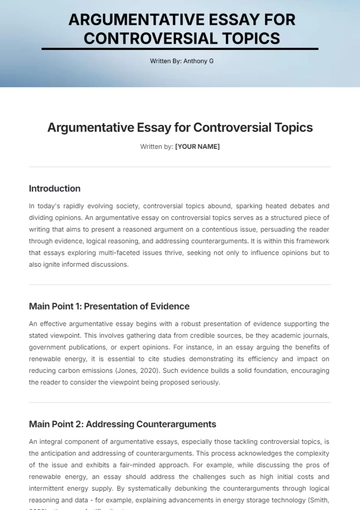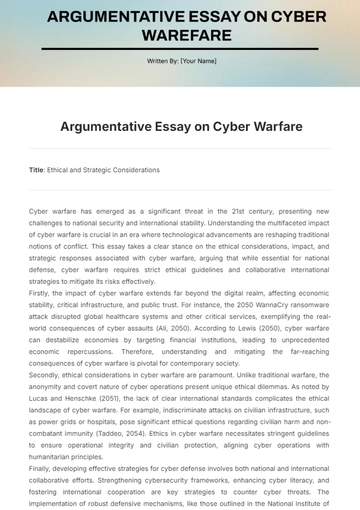Free Technology Debate Argumentative Essay
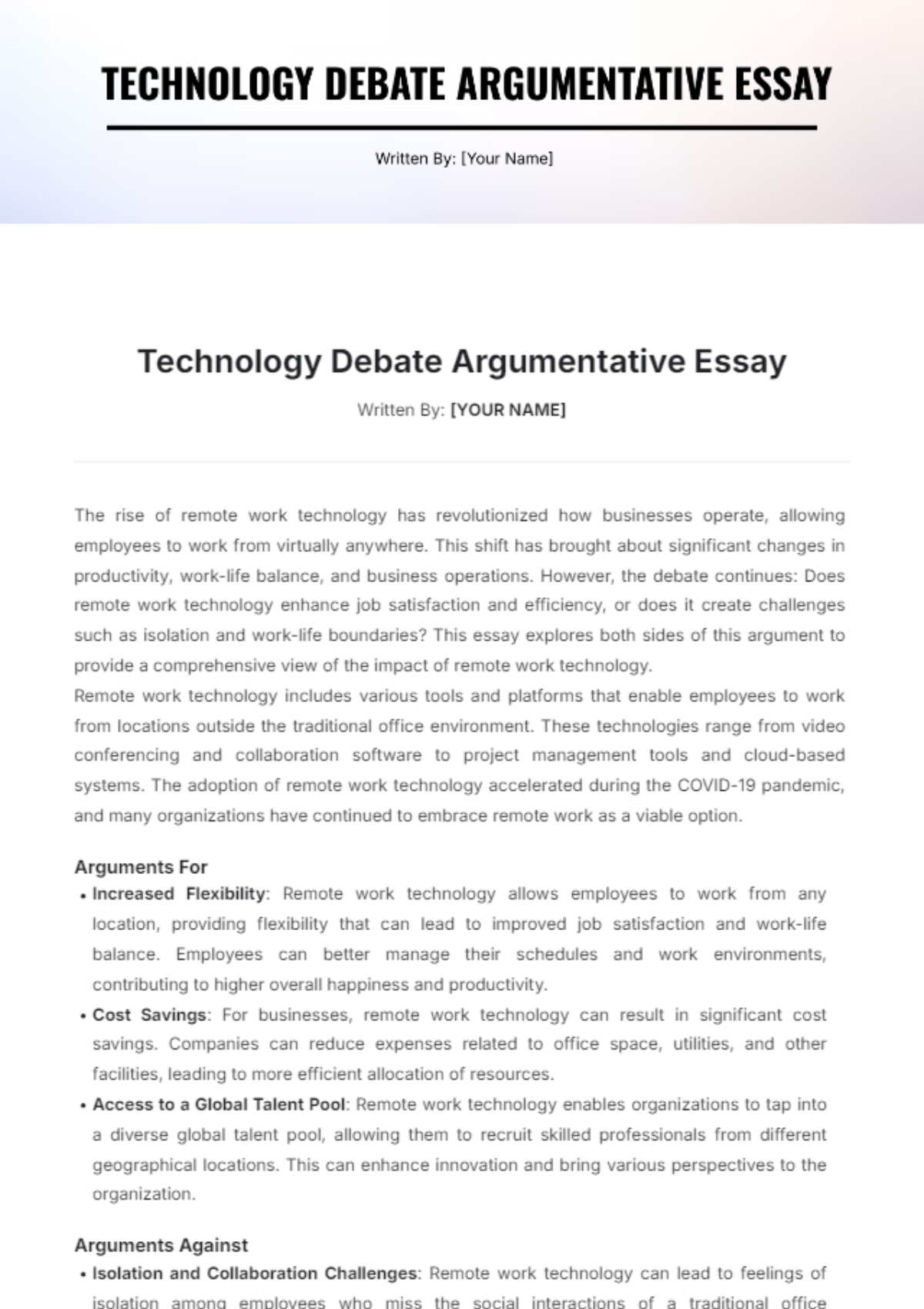
Written By: [YOUR NAME]
The rise of remote work technology has revolutionized how businesses operate, allowing employees to work from virtually anywhere. This shift has brought about significant changes in productivity, work-life balance, and business operations. However, the debate continues: Does remote work technology enhance job satisfaction and efficiency, or does it create challenges such as isolation and work-life boundaries? This essay explores both sides of this argument to provide a comprehensive view of the impact of remote work technology.
Remote work technology includes various tools and platforms that enable employees to work from locations outside the traditional office environment. These technologies range from video conferencing and collaboration software to project management tools and cloud-based systems. The adoption of remote work technology accelerated during the COVID-19 pandemic, and many organizations have continued to embrace remote work as a viable option.
Arguments For
Increased Flexibility: Remote work technology allows employees to work from any location, providing flexibility that can lead to improved job satisfaction and work-life balance. Employees can better manage their schedules and work environments, contributing to higher overall happiness and productivity.
Cost Savings: For businesses, remote work technology can result in significant cost savings. Companies can reduce expenses related to office space, utilities, and other facilities, leading to more efficient allocation of resources.
Access to a Global Talent Pool: Remote work technology enables organizations to tap into a diverse global talent pool, allowing them to recruit skilled professionals from different geographical locations. This can enhance innovation and bring various perspectives to the organization.
Arguments Against
Isolation and Collaboration Challenges: Remote work technology can lead to feelings of isolation among employees who miss the social interactions of a traditional office environment. Additionally, virtual collaboration may not fully replicate the effectiveness of face-to-face meetings, potentially impacting team dynamics and communication.
Work-Life Boundaries: The blurring of boundaries between work and personal life is a common challenge with remote work technology. Employees may struggle to separate work from home life, leading to longer work hours and increased stress.
Technology Dependence: Relying heavily on remote work technology can create issues if technical problems arise. Connectivity issues, software malfunctions, or cybersecurity threats can disrupt work and impact productivity.
While the challenges associated with remote work technology are significant, they can be managed with appropriate strategies and tools. For example, regular virtual team meetings and social interactions can help alleviate feelings of isolation, while clear guidelines on work hours can help maintain work-life balance. Additionally, investing in reliable technology and cybersecurity measures can address technical issues and ensure smooth operations.
The debate over remote work technology highlights both its advantages and challenges. While remote work technology offers increased flexibility, cost savings, and access to a global talent pool, it also presents issues related to isolation, work-life boundaries, and technology dependence. By adopting best practices and addressing potential challenges proactively, organizations can harness the benefits of remote work technology while mitigating its drawbacks. As remote work continues to evolve, ongoing evaluation and adaptation will be essential in shaping its impact on the future of work.
- 100% Customizable, free editor
- Access 1 Million+ Templates, photo’s & graphics
- Download or share as a template
- Click and replace photos, graphics, text, backgrounds
- Resize, crop, AI write & more
- Access advanced editor
Explore the dynamic world of technology debates with our Technology Debate Argumentative Essay Template. This customizable template from Template.net is perfect for presenting well-structured arguments on topics like AI, cybersecurity, and digital privacy. Fully editable in our AI Editor Tool, it offers a flexible format that can be tailored to your specific discussion points

